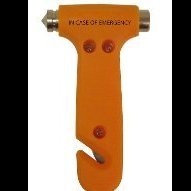Help with Applying for Thai wife's EEA Family Permit from Spain
-
Recently Browsing 0 members
- No registered users viewing this page.
-
Topics
-
-
Popular Contributors
-
-
Latest posts...
-
34
USA Measles Resurgence in the U.S. Reaches 33-Year High Amid Vaccine Hesitancy
Monumental humbug Sir. I've not seen evidence to support your claim. But plenty that say the opposite. -
61
Truevisions loses EPL
Truevisions is proudly stating that it will be showing all Italian Serie A matches starting this season. So, is that it? EPL replaced by Serie A. -
29
Report Phuket Bars Cleared to Serve Alcohol on Buddhist Holidays
Adding more days to the amount that visitors can get paralytic makes a lot of sense if you are an island that relies on making money from tourists, I guess... -
19
Health Rising HIV Cases Among Thai Youth Prompt New Health Initiatives
Have mentioned this here once before, when I first came here in 1993, I already saw posters mentioning the dangers against AIDS, but apparently it didn't help much, but must admit from my own experience before that even the Thai don't take it that easy with contraceptives. -
20
Report Thai Coconut Industry Ends Monkey Labour to Win Back Trust
Some are legal migrants 😂- 1
-

-
34
USA Measles Resurgence in the U.S. Reaches 33-Year High Amid Vaccine Hesitancy
Not true. Dr Vernon Coleman spells it out. "Anyone that tells you vaccines are safe and effective is lying." Or necessary I might add.
-
-
Popular in The Pub













Recommended Posts
Create an account or sign in to comment
You need to be a member in order to leave a comment
Create an account
Sign up for a new account in our community. It's easy!
Register a new accountSign in
Already have an account? Sign in here.
Sign In Now